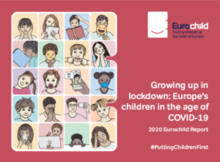In February 2020 the COVID-19 virus started to spread in Europe. Since then our economies, societies, and daily lives have been turned upside down. This report reflects on the effects of the coronavirus pandemic on children. It compiles information gathered from 25 countries across Europe, and provides recommendations for improving public policies in the short and long-term to support better outcomes for children and families. The assessment is accompanied by reflections on the 2020 European Semester. This report is based on information gathered until August/September 2020, and was released in November 2020.
The COVID-19 pandemic has exacerbated existing problems of social inequality, with job losses pushing many families further into poverty and school closures creating a wider educational divide, impacting children’s life chances, and their physical and mental health. It has exposed the lack of national policies to tackle poverty, particularly child poverty, and drawn attention to the need for a multidimensional approach. As a result, Eurochild and its members are calling for recovery plans that take children’s needs into account, for national plans to reduce poverty, and for targeted support from the EU, including through implementation of an EU Child Guarantee.
Out of 25 country profiles, 20 also looked at the situation of children in alternative care, including the increased risk of placement in alternative care due to financial pressures and domestic violence faced by families in light of the pandemic, as well as the impacts of COVID-19 on children in out-of-home care.
View an interactive map on child poverty in Europe.

